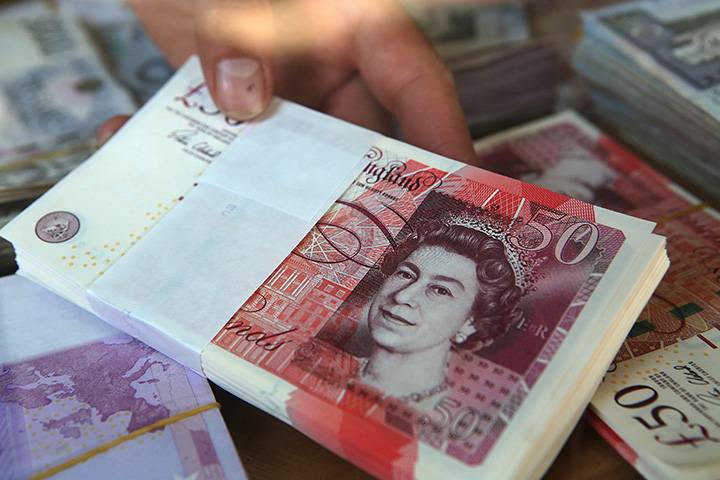The pound fell the most in more than four weeks after the Bank of England cut interest rates for the first time since March 2009, part of a suite of stimulus measures to help boost the economy after the U.K.’s vote to leave the European Union in June.
Sterling dropped at least 1.4 percent against all of its 16 major peers after the nine-member Monetary Policy Committee voted unanimously to lower the benchmark rate by 25 basis points to a record-low 0.25 percent. Officials led by Governor Mark Carney increased the central bank’s asset-purchase target for the first time in four years, raising the target by 60 billion pounds ($79 billion) to 435 billion pounds. U.K. government bonds jumped, pushing the 10-year gilt yield to a record low.
The MPC also said it will buy as much as 10 billion pounds of corporate bonds in the next 18 months, though there was disagreement among the nine members about whether quantitative easing was warranted at this stage. Options trading showed the pound could fall further in coming months.
Brexit ‘Headwinds’
“The BOE clearly is willing to provide an array of stimulus policies because it thinks that the U.K. economy is going to face substantial headwinds from Brexit,” said Peter Frank, global head of Group-of-10 currency strategy at Banco Bilbao Vizcaya Argentaria SA in London. “I think the BOE and the government is keen to see a much weaker pound.”
The pound fell 1.5 percent to $1.3126 as of 4:02 p.m. London time, the steepest decline since July 5, a day before it touched a 31-year low of $1.2798. Sterling weakened 1.4 percent to 84.85 pence per euro.
The decision to cut borrowing costs was forecast by all but two of 52 economists surveyed by Bloomberg, with the majority predicting a 25 basis-point reduction. Before the announcement, swaps pricing showed a 100 percent chance of a cut.
Economists in a separate survey were less certain about the possibility of the BOE announcing further stimulus measures, with 23 of 44 analysts forecasting no change to the the central bank’s quantitative-easing plan.
‘Further Easing’
“We feel this is an appropriate first step and anticipate further easing from the MPC in the coming months as the growth outlook becomes clearer,” said David Zahn, London-based head of European fixed income at Franklin Templeton Investment Management Ltd. “This is good news as it is supportive of the bond market. However, in general this will be slightly bearish for the pound.”
The pound has declined almost 12 percent against the dollar since the nation opted for Brexit, weakening for a third consecutive month in July, as economic consequences of the decision began to surface.
Derivatives trading suggested the pound will weaken further. The premium for three-month options granting the right to sell the currency against the dollar relative to those for buying rose 16 basis points to 1.07 percentage points. That’s still lower than the level on the referendum day when it was 4.13 percentage points.
On a longer-term horizon however, that concern was less pronounced. The premium for 12-month options was little changed at 1.635 percentage points.
Benchmark 10-year gilt yields dropped 16 basis points, or 0.16 percentage point, to 0.64 percent, having earlier touched 0.634 percent. The 2 percent bond due in September 2025 rose 1.505, or 15.05 pounds per 1,000-pound face amount, to 111.985. The nation’s two-year gilt yield fell eight basis points to 0.12 percent, after reaching 0.07 percent, the lowest since July 1.
“So the BOE delivered a dovish surprise as regards QE measures,” said Thu Lan Nguyen, a foreign-exchange strategist at Commerzbank AG in Frankfurt. “Only roughly half the market probably had expected an increase of QE, probably less the introduction of corporate bonds. The BOE wants to set a clear signal that it has switched into crisis mode.”


 Naira4 weeks ago
Naira4 weeks ago
 Naira4 weeks ago
Naira4 weeks ago


 Naira4 weeks ago
Naira4 weeks ago




 Naira3 weeks ago
Naira3 weeks ago
 Commodities4 weeks ago
Commodities4 weeks ago


 News4 weeks ago
News4 weeks ago


 Banking Sector4 weeks ago
Banking Sector4 weeks ago
 Travel4 weeks ago
Travel4 weeks ago























